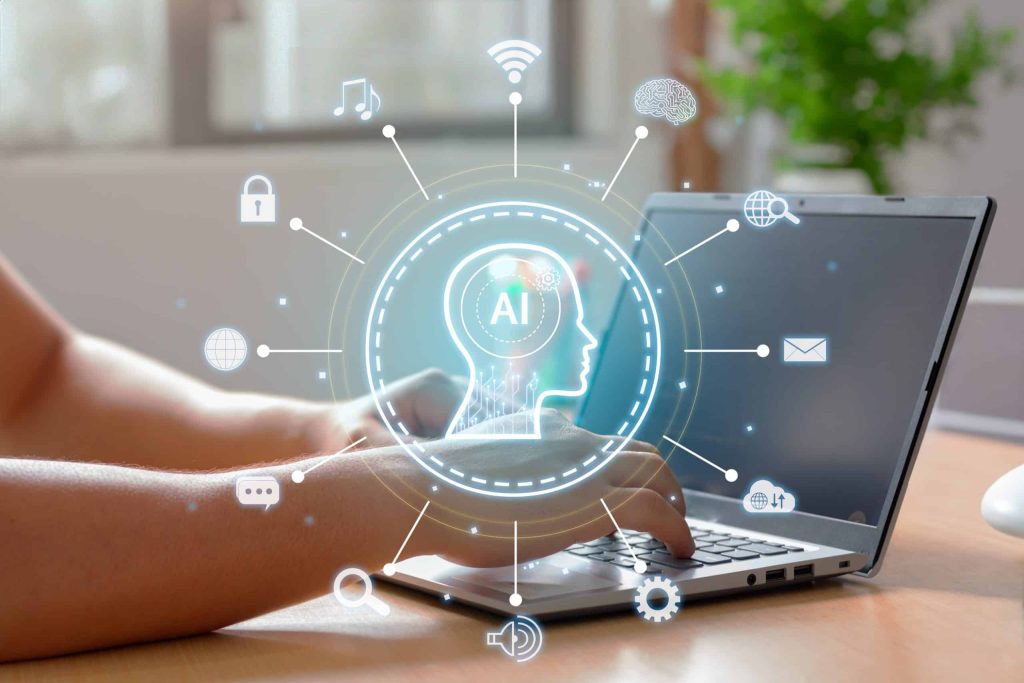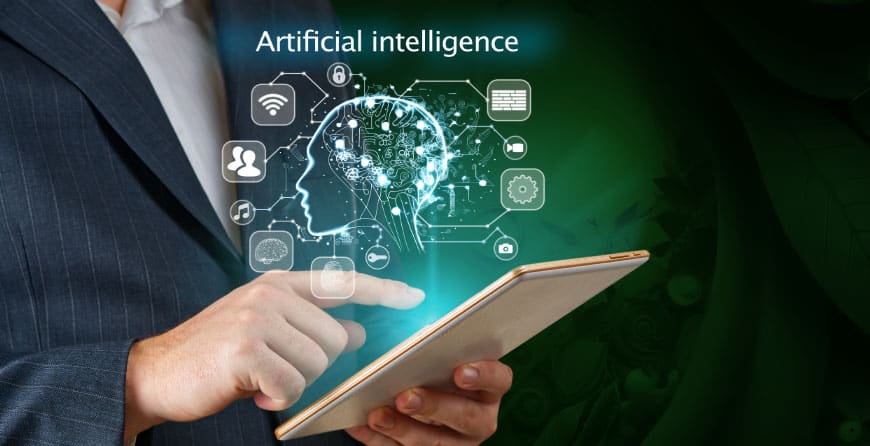In the current digital era, marketing is no longer limited to conventional tactics and labor-intensive procedures. The landscape of modern marketing has changed as a result of the quick development of technology, especially in the areas of artificial intelligence (AI) and machine learning (ML). With the help of these technologies, businesses are now able to analyze data, engage with customers, and improve marketing efforts. We’ll explore the profound effects of AI and machine learning on contemporary marketing in this blog, as well as how they contribute to efficiency, personalization, and innovation.
The Basis of AI and Machine Learning in Marketing.
Artificial intelligence is the simulation of human intelligence in machines that allows them to carry out tasks that would typically require human intelligence. Machine learning, a branch of artificial intelligence, gives computers the ability to learn from data and develop over time without explicit programming. When used in marketing, artificial intelligence (AI) and machine learning enable marketers to deliver personalized experiences, make data-driven decisions, and increase the effectiveness of campaigns as a whole.
Insights and Data Analysis.
Data analysis has been revolutionized by AI and machine learning, which is the cornerstone of contemporary marketing. With the help of these technologies, which can process enormous amounts of data at breakneck speeds, valuable insights that were previously hidden in complicated datasets can now be found. Marketers can learn a great deal about consumer behavior, preferences, and buying habits. This realization serves as the foundation for developing focused, effective strategies that connect with target audiences more deeply.
Scaled Personalization.
The era of universally appealing marketing messages is over. Hyper-personalization is made possible by AI and machine learning, giving marketers the ability to design customized customer experiences. Businesses can deliver content, recommendations, and offers that suit the preferences of each customer by examining past interactions and present-day behavior. This individualization boosts engagement while also fostering brand loyalty and increasing conversion rates.
Prognostic analytics.
A game-changer in marketing strategy is predictive analytics. Based on patterns in the historical data, AI and machine learning algorithms can predict future trends and outcomes. Because of this ability, marketers are better able to predict customer needs, make wise choices, and alter strategies early on. Predictive analytics gives businesses a competitive edge in a fast-paced environment, whether it’s predicting demand for a product or identifying emerging market trends.

Engaging customers with chatbots
The face of customer service has changed as a result of AI-driven chatbots. When a customer asks a question, these virtual assistants provide prompt answers while assisting them at different stages of the purchasing process. Chatbots expedite customer interactions, improve user experience overall, and offer prompt assistance. Businesses can interact with customers whenever they have questions or concerns, providing prompt responses.
Optimization and creation of content.
The creation of content is now subject to the influence of AI and machine learning. These technologies have the ability to create written content, graphic designs, and even videos. To free up time for innovation and strategic planning, marketers can automate the creation of content for repetitive tasks. In order to optimize content strategies for maximum impact, AI-driven tools for content optimization also analyze performance data.
Accurate audience segmentation.
Effective marketing is based on segmentation.
By examining complex traits, behaviors, and preferences, AI and machine learning help marketers to better segment their audience. This degree of specificity makes sure that marketing campaigns target the right demographic and convey the right message, reducing resource waste and increasing engagement rates.
Campaign optimization in real time.
Campaign optimization has historically required manual intervention and time-consuming analyses. Campaigns can be optimized in real time using AI and machine learning. In-the-moment adjustments are made by algorithms after they have examined data on campaign performance. This entails enhancing messaging for maximum effectiveness, fine-tuning ad placements, and changing bidding tactics.
Social media monitoring and insights.
AI tools are skilled at keeping an eye on social media sites, analyzing conversations, and spotting brand-related trends. Businesses can stay aware of the opinions of their audience thanks to the invaluable insights that this real-time monitoring offers into public sentiment. Sentiment analysis enables marketers to evaluate customer perception of their brands and adjust their strategies as necessary.
Fraud Prevention and Detection.
Fraudulent activities in the digital world can hurt a company’s reputation and financial standing. Algorithms based on artificial intelligence (AI) and machine learning can spot anomalies and strange patterns that point to fraudulent activity. Early detection assists companies in preventing losses and preserving customer confidence.
Conclusion.
Modern marketing has entered a new era of possibilities with the incorporation of AI and machine learning. These technologies have changed marketing from a static process to a dynamic, data-driven discipline. Examples include data analysis, personalization, predictive analytics, and real-time optimization. Businesses that use AI and machine learning gain a competitive edge by making informed decisions, developing personalized experiences, and remaining adaptable in a constantly changing environment.
The application of AI and machine learning in marketing will only grow as a result of the ongoing advancement of technology. Marketers who successfully use these capabilities will prosper, meeting the demands of today’s educated consumers and fostering innovation-driven growth. Modern marketing is no longer just about reaching audiences; it’s about engaging, understanding, and connecting with them on a profound level. This is where AI and machine learning’s transformative power is evident.



